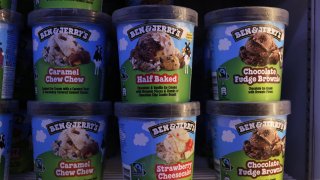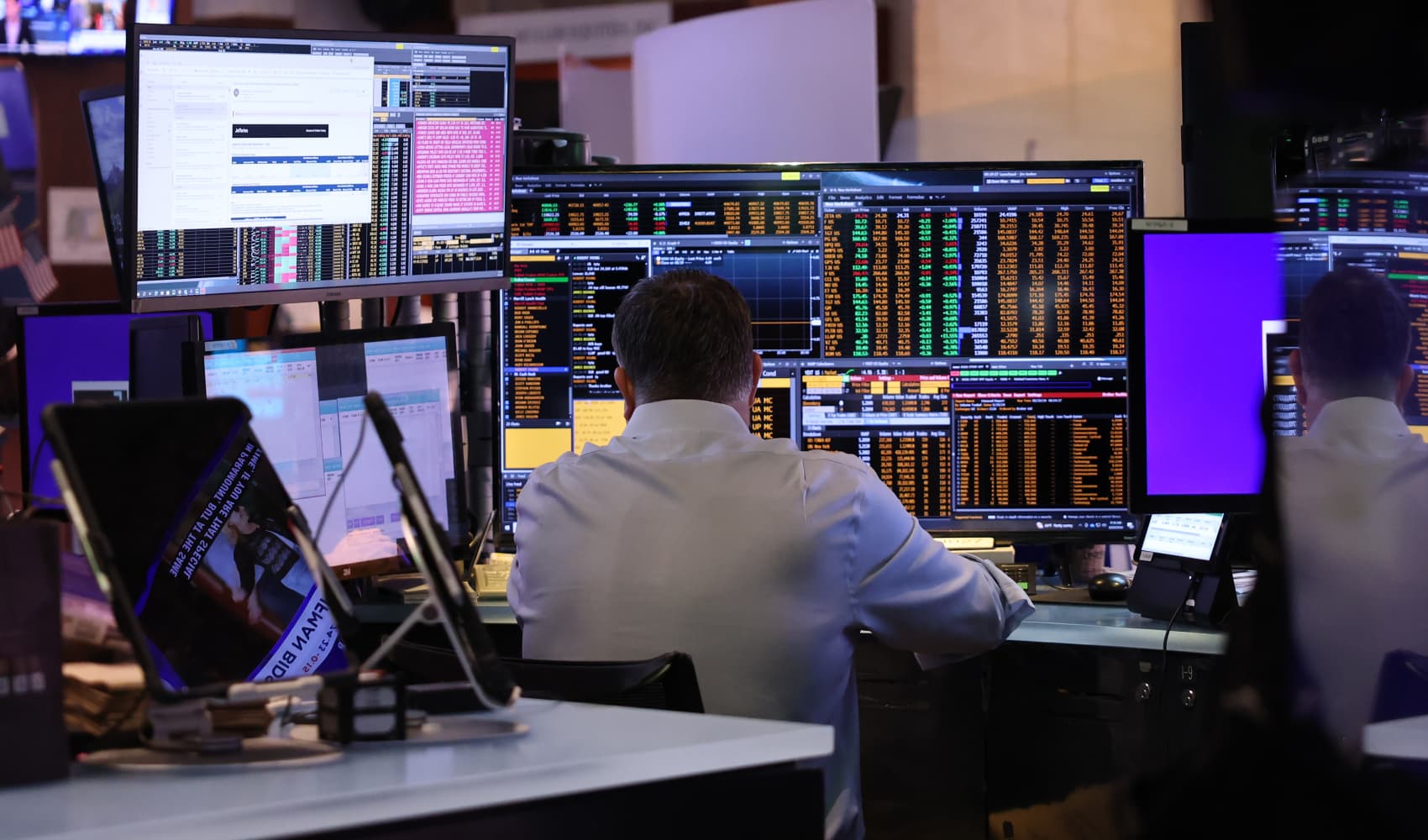
- Unilever shares popped on Thursday morning, after the consumer goods giant raised its full-year margin guidance and said the spinoff of its ice cream business was on track to complete by the end of 2025.
- "We've seen a good volume growth ... a sequential improvement in that. But pricing was a bit subdued, and that was also the result of the commodity basket that saw a much lower inflation than obviously we've seen over the last couple of years," Unilever CEO Hein Schumacher told CNBC.
- Underlying price growth was 1% in the second quarter of this year, compared with 8.2% in the same period of 2023.
Unilever shares popped on Thursday morning, after the consumer goods giant raised its full-year margin guidance and said the spinoff of its ice cream business was on track to complete by the end of 2025.
Shares climbed nearly 8% during the morning, before gains cooled to around 6.5% by 12:15 p.m. in London.
The company, whose vast portfolio of brands spans Dove, Axe, Hellmann's, Knorr, Domestos, Marmite and Vaseline, recorded sales growth across all segments in first-half results published on Thursday. Beauty and well-being expanded 7.1%, while ice cream lagged other segments with just 0.6% of sales growth — which includes prices — and a 1% decline in volumes sold.
Unilever called the performance of ice cream, which totals 15% of group turnover, "disappointing." Back in March, the company announced it would separate the unit, which includes Ben & Jerry's and Magnum, in a bid to streamline its business across beauty and well-being, personal care, home care and nutrition.
"We've seen a good volume growth ... a sequential improvement in that. But pricing was a bit subdued, and that was also the result of the commodity basket that saw a much lower inflation than obviously we've seen over the last couple of years," Unilever CEO Hein Schumacher told CNBC's Silvia Amaro on Thursday, regarding the results.
Money Report
"And when we see that we're focused on competitiveness as well. And if we can give it back to the consumer, then that's what we do."
Unilever raised prices across product categories early in the inflationary cycle of the last three years, citing "extraordinary" input cost pressures across agricultural products, energy, transport and logistics.
Feeling out of the loop? We'll catch you up on the Chicago news you need to know. Sign up for the weekly Chicago Catch-Up newsletter.
Underlying price growth was 1% in the second quarter of this year, compared with 8.2% over the same period of 2023.
Unilever's organic sales growth came in at 3.9% in the second quarter, missing expectations of a 4.2% expansion forecast by a company-compiled consensus.
Analysts at Jefferies said this would be overshadowed by the company's beat on its gross margin for the period, along with an uplift in its margin guidance for "at least 18% for the full-year." It had previously anticipated a "modest expansion" in operating margins across the period.
"This margin commitment will see consensus [earnings per share] move up c7-8% we think," the analysts said.
The company said in the Thursday results that the strong gross margin progression in the first half of the year reflected volume leverage and net productivity — along with factors that would not continue into the second half, such as a low comparator year when input costs were higher.
"We're very focused on margin expansion to refuel our brands and increase the investment in marketing behind our top brands. And that's what we've been seeing in the first six months of the year," Schumacher told CNBC.






